Hidden Fallout: States continue to hide dark secrets of nuclear testing
The UK and other states hide nuclear sins behind ‘classified’ veil
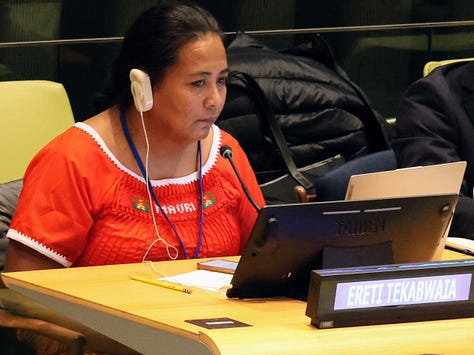
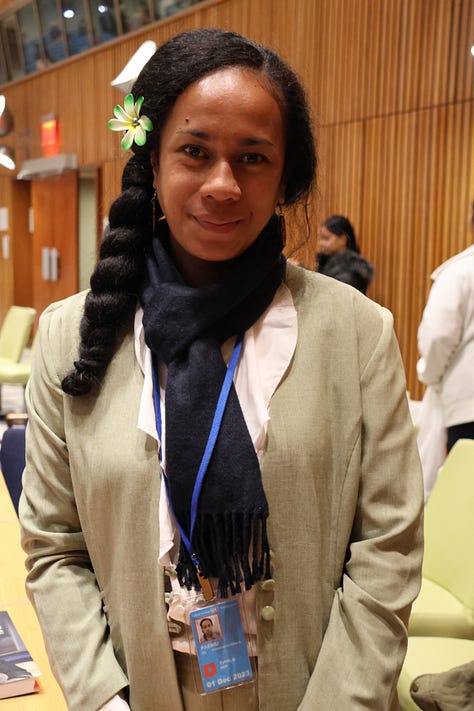
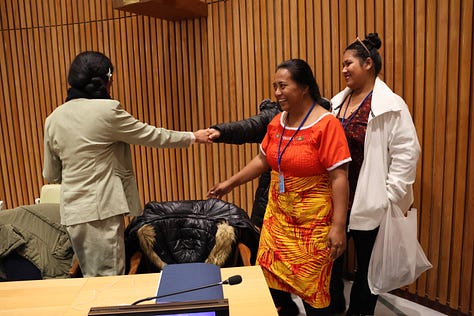
As the Kiribati delegation was presenting testimony about the significant harm caused by nuclear testing to their home, Ben broke the story that the UK Foreign Office refuses to provide vital information about past nuclear tests, including environmental and health impacts, or financial compensation. Spoiler Alert is back with more information about what the UK government is withholding and exclusive insights from participants at the 2MSP on how nuclear testing states refuse to acknowledge the harm they have done, or even provide basic information that could be life-saving to generations of survivors. In this darkness, there is reason to hope. The TPNW has created new space for advocates to force those nuclear secrets into the light, renewing hope that the justice of knowledge will prevail.
Read on and do us a favor by sharing Spoiler Alert if you value journalism that goes behind the jargon to uncover the people who make diplomacy work. — Jason
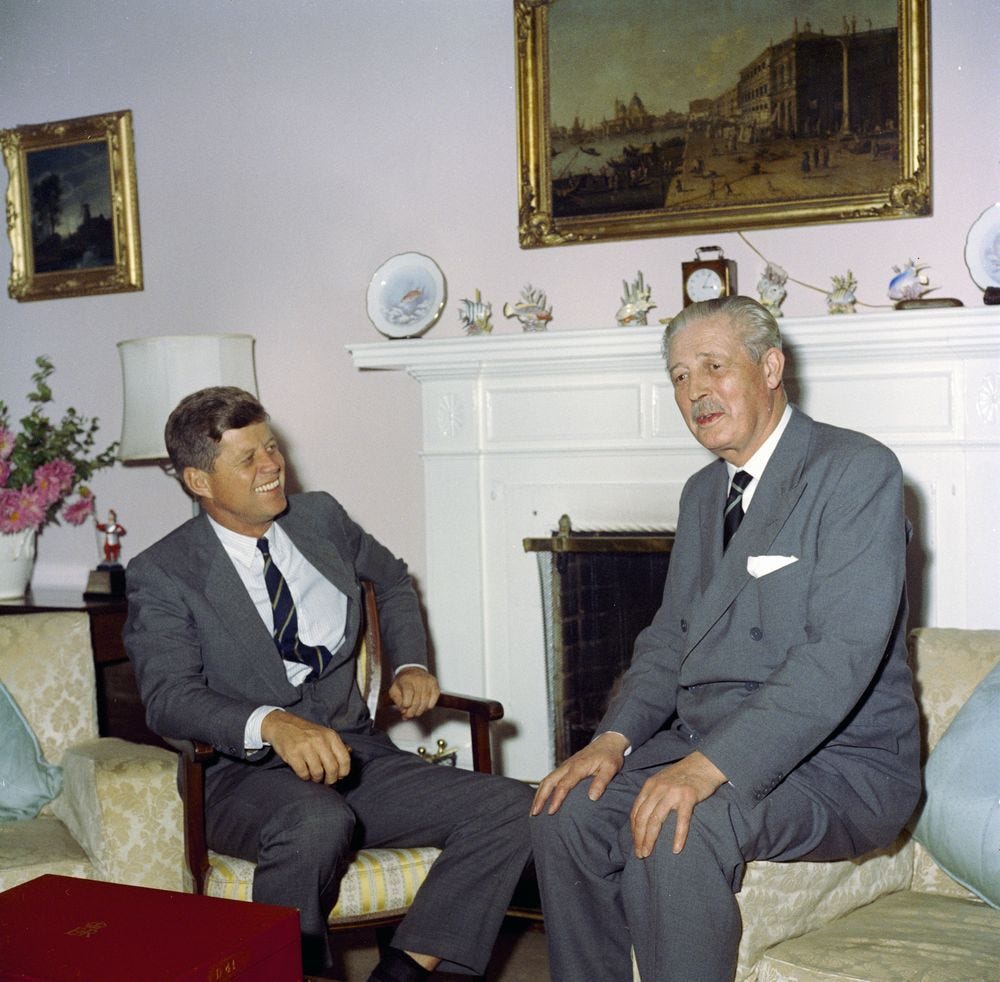
Over gin and tonics in Bermuda, UK Prime Minister Harold Macmillan lent Kiribati’s islands, then under British colonial control, to U.S. President John F. Kennedy for nuclear testing. As their advisers casually debated how many nuclear weapons would be needed to destroy particular nations, glasses clinking, J.F.K convinced Macmillan that any attempt to negotiate arms control with the Soviet Union would only give the Soviets time to develop deadlier nuclear weapons. The only answer, argued the U.S. president, was more weapons; more testing. Previously, the UK had detonated nine nuclear bombs on the territory from 1957-58.
Arms control talks were scuttled and the U.S. conducted 24 further blasts on Kiribati in 1962 with the UK’s blessing, as well as a collaborative regime of UK-US testing in Nevada all the way through to 1991.
As the Treaty on the Prohibition of Nuclear Weapons (TPNW) grows more influential, states that have caused harm through testing find themselves in a particular bind. By continuing to dismiss the treaty, states like the UK are actively impeding the humanitarian work of TPNW states - work aimed at rehabilitating the environment and providing for the needs of their populations.
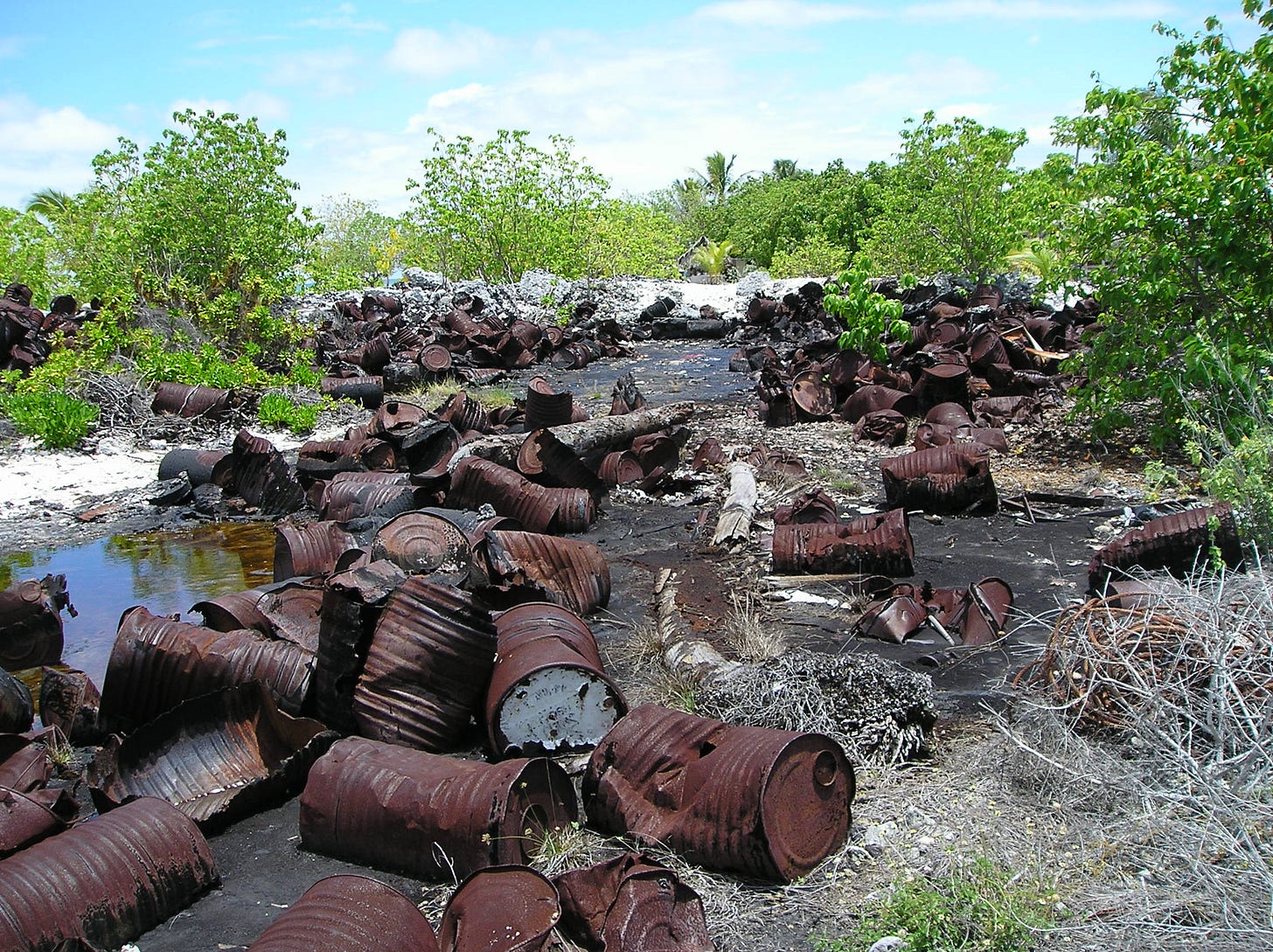
The tests had devastating consequences for the health of the local population in Kiribati and for the environment. Exposure to radiation also affected service personnel, including those from Fiji – another party to the TPNW.
The UK holds reams of documents detailing what occurred during those tests, a large portion of which remains classified and inaccessible, despite the tests having been completed over 60 years ago.
The list is vast, but here are just a few files that we know exist, whose contents remain inaccessible to scientists working on the TPNW programme on victim assistance and environmental remediation:
ES 16/58 JOWOG 16: detection of atomic weapons; paper F8 Christmas Island air fluorescence Measurements
ES 18/78 RA assemblies for MOSAIC, GRAPPLE and BUFFALO
ES 18/98 Operation GRAPPLE: interim report on radio flash measurements on Operation GRAPPLE
ES 5/204 Operation GRAPPLE: Radiochemistry Part 2; analysis at AWRE Aldermaston
ES 5/226 Operation GRAPPLE: radiochemistry Part 1; analysis at Christmas Island
ES 5/274 Operation GRAPPLE X: radiochemistry; trial summary and best values
ES 5/259 Operations GRAPPLE X and GRAPPLE Y: thermal flux on Valiant aircraft
ES 5/261 Operation GRAPPLE: measurement of yield and solubility of some fission products in fallout by gamma-ray analysis (Round 1)
Despite the age of some of these documents, they remain behind a wall of secrecy, subject to a review of nuclear archive records with no end date (or release date) in sight.
Other documents have a proposed release date, but it is decades in the future, such as one entitled: “PIN 15/5265: Exposure to nuclear radiation: Christmas Island". While 5 of the 6 surveys and clean-up reports identified in a recent report are not readily available.
Continuing to hide information has a direct impact on Algerian health safety
Denial of information unites the nuclear-armed states. In fact, knowledge about the existence of classified UK documents actually makes the UK compare favorably to others.
Jean–Marie Collin of ICAN France told Spoiler Alert that “57 years after the last nuclear test in Algeria, all documentation on the French nuclear tests in Algeria remains classified and inaccessible. Continuing to hide information has a direct impact on Algerian health safety”.
Speaking to Spoiler Alert Alimzhan Akhmetov of the Center for International Security and Policy notes that there are major gaps in knowledge about what took place in Kazakhstan: even the number of tests that took place is disputed, he says: “we do not know the exact number of nuclear tests because at that time it was the Soviet Union, the military was in charge of the numbers, and when the Soviet Union collapsed they took the archival documents to Moscow and they are still classified”.
Even less is known about China’s operations at Lop Nur – where all of their 45 nuclear weapon tests took place. What is known is largely circumstantial, for example, it has been reported that payments have been made to military personnel affected by radiation from nuclear weapon testing and speculated that over a million people may have been subjected to doses of radiation high enough to cause leukemia.
Denial of knowledge around nuclear testing is clearly a major stumbling block in efforts by affected countries to assess and remediate harms. Work undertaken by Dr Becky Alexis Martin in Kiribati has identified a clear desire within the community to uncover the truth of what took place. This is often viewed as an issue of justice - in this case the justice of knowledge, or ‘epistemic justice’. Read more about her research here.



